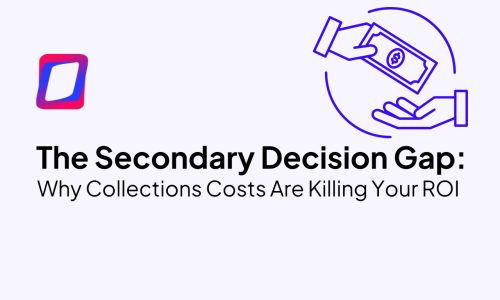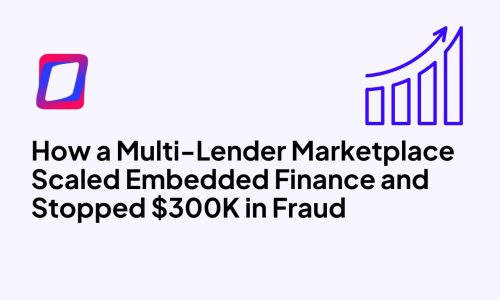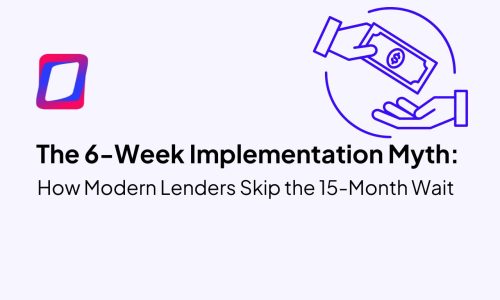Vouched co-founder John Baird discusses ID Verification in the Age of AI: Deep Fakes and Reputation Management
Embark on a captivating journey into the ever-evolving landscape of the lending industry, where fraud prevention takes center stage.
Navigating the Digital Identity Landscape: Insights from Vouched Co-founder John Baird on AI, Deep Fakes, and Reputation Management
Join host Rich Alterman in this illuminating episode of The Lending Link as he engages in a dynamic conversation with John Baird, the visionary Co-Founder, and CEO of Vouched ID, a leading ID Verification company based in Seattle.
Uncover the insights into the experiences and motivations that paved the way for the establishment of Vouched.ID, as Rich and John engage in a conversation about the company’s ambitious vision to build the world’s largest identity and reputation management platform.
Delve into the distinctive value proposition that sets Vouched apart from its competitors within the lending industry. John passionately shares success stories from various industries, demonstrating how Vouched’s solutions transcend traditional financial services and redefine use cases.
Explore the vast range of over 1,000 supported ID document types from 150 countries as John categorizes these various documents and shares captivating anecdotes of unique verification cases encountered by Vouched. Brace yourself for eye-opening narratives that challenge conventional notions of identity verification.
Discover the seamless ID verification process powered by Vouched’s cutting-edge solutions and the powerful synergy between AI and machine learning within their platform. Gain insights into the significance of Dark Web Risk Analysis and the role of technology and human expertise in continuous improvement.
Unravel the mysteries of Generative AI as Rich explores the intricate role of AI and machine learning in the ID verification process. Uncover the features and benefits of Vouched’s three service levels—Identify Essentials, Identity Advances, and Identify Premier—and gain insights into the battle against Deep Fake technology.
Drawing from his extensive consulting experience, John shares invaluable perspectives on the key data points that shape lenders’ ID verification and fraud strategies. Unlock best practices for seamless integration of Vouched into the data waterfall and gain a deeper understanding of how collaboration and information sharing contribute to a secure lending environment.
Concluding this enlightening episode, John offers tantalizing glimpses into Vouched’s product roadmap and exciting future solutions. Get inspired as the conversation concludes with a thought-provoking question unrelated to Vouched, allowing John to share his insights on another engaging topic, leaving listeners with a sense of inspiration and curiosity.
To further explore Vouched and its pioneering ID verification solutions, visit their website at www.Vouched.ID. Stay connected with GDS Link and The Lending Link for future episodes that delve into the dynamic world of lending and beyond.
Don’t miss out on this captivating episode where Rich Alterman connects with John Baird, CEO and Co-founder of Vouched, to navigate the fascinating landscape of ID verification, unveiling the path towards a more secure and trustworthy digital future.
About John Baird:
Vouched Founder and CEO, John Baird, is driven by the potential of digital transformation to revolutionize businesses and improve the lives of the consumers they serve. He has deep experience working in technology and with startups and has witnessed firsthand the power of technology to make the world a better place.
John was inspired to found Vouched as a culmination of several seminal experiences that happened throughout his career. The first happened at Blue Nile, one of the first online jewelry retailers, where John experienced firsthand the time consuming and labor intensive process of verifying a purchase for luxury items. He knew that there had to be a better way to do this, and he began to think about how technology could be used to make the process more efficient and secure. If verification could be automated, it would remove the manual process that many times delayed and frustrated customers, many of whom were buying an engagement ring at a price point far beyond their typical online transactions. After Blue Nile, John worked on a project with a major automotive manufacturer promoting advancements in its self-driving technology, and was impressed by the potential of computer vision technology to identify people and objects. It was 2013 and still a nascent space for computer vision and objection detection, but its potential was readily apparent.
If these experiences led him to see what technology was capable of, the real “aha” moment was realizing its potential for massive human impact on a global scale. A colleague at a local nonprofit shared their frustration that while major corporations touted the ethical sourcing of agricultural commodities in developing countries, many local farmers who didn’t have documentation available were left out of the supply chain. If there was a better way to support these credit invisible individuals, more opportunities might become available to them.
These experiences culminated with the idea of using computer vision and AI technology to verify the identity of individuals. Today, Vouched serves a pivotal role in connecting businesses with good humans, verifying their identity and accelerating the onboarding process so they can take advantage of services available to them as quickly as possible. Our AI-powered identity verification solution expertly uses computer vision technology and AI driven fraud models to provide a secure and seamless way for businesses to verify the identity of their customers.
Be sure to follow John and our host Rich on LinkedIn, and for the latest GDS Link updates and news, follow us on Twitter and LinkedIn. You can subscribe to the Lending Link on Apple Podcasts, Spotify, Google Play, YouTube, or wherever you prefer to listen to your podcasts!
Recent articles

The Secondary Decision Gap: Why Collections Costs Are Killing Your ROI
Read article
How a Multi-Lender Marketplace Scaled Embedded Finance and Stopped $300K in Fraud
Read article





